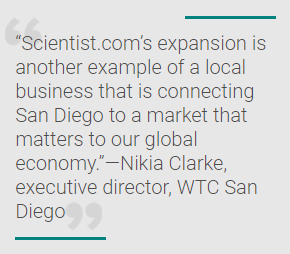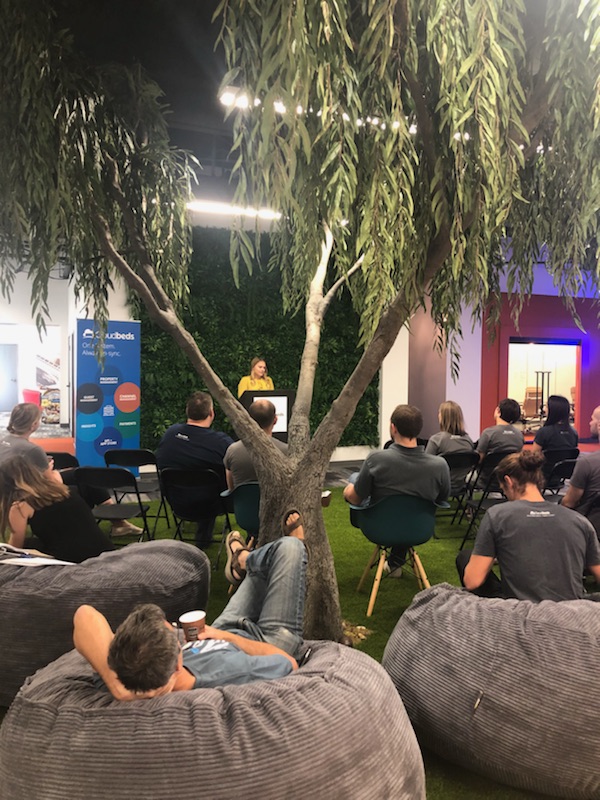As part of EDC’s Inclusive Growth initiative, we’re gathering best practices to help uncover unique approaches to inclusion that can be replicated or scaled locally – including actions from employers and regions outside of San Diego. We hope that sharing these best practices will help inspire San Diego companies/organizations to take on their own. Read The New York Times article below to learn how Microsoft is contributing to affordable housing in the Seattle area:
SEATTLE — The Seattle area, home to both Microsoft and Amazon, is a potent symbol of the affordable housing crisis that has followed the explosive growth of tech hubs. Now Microsoft, arguing that the industry has an interest and responsibility to help people left behind in communities transformed by the boom, is putting up $500 million to help address the problem.
Microsoft’s money represents the most ambitious effort by a tech company to directly address the inequality that has spread in areas where the industry is concentrated, particularly on the West Coast. It will fund construction for homes affordable not only to the company’s own non-tech workers, but also for teachers, firefighters and other middle- and low-income residents.
Microsoft’s move comes less than a year after Amazon successfully pushed to block a new tax in Seattle that would have made large businesses pay a per-employee tax to fund homeless services and the construction of affordable housing. The company said the tax created a disincentive to create jobs. Microsoft, which is based in nearby Redmond, Wash., and has few employees who work in the city, did not take a position on the tax.
The debate about the rapid growth of the tech industry and the inequality that often follows has spilled across the country, particularly as Amazon, with billions of taxpayer subsidies, announced plans to build major campuses in Long Island City, Queens, and Arlington, Va., that would employ a total of at least 50,000 people. In New York, elected officials and residents have raised concerns that Amazon has not made commitments to support affordable housing.
Microsoft has been at the vanguard of warning about the potential negative effects of technology, like privacy or the unintended consequences of artificial intelligence. Executives hope the housing efforts will spur other companies to follow its lead.
“We believe everybody has a role to play, and everybody needs to play their role,” said Brad Smith, Microsoft’s president and chief legal officer.
The company’s strong finances, a sign of its resurgence under Satya Nadella as chief executive, have given it resources to deploy, Mr. Smith said. In October, the company reported net income of $8.8 billion in its most recent quarter, up 34 percent, and it had almost $136 billion in cash and short-term investments on its balance sheet. The company’s stock has risen steadily under Mr. Nadella, and Microsoft is now valued at over $800 billion.
A number of other tech businesses have tried to address the homeless crisis. Amazon’s chief executive, Jeff Bezos, has supported homeless service providers through his personal foundation, and the Salesforce chief executive, Marc Benioff, helped fund a proposition in San Francisco to tax businesses to pay for homeless services. Voters approved the tax in November, rejecting opposition from some tech leaders, including Twitter’s chief executive, Jack Dorsey.
Others plan to build housing for their own employees. Such housing may help with demand, but it has also reinforced the impression that the companies are focused too closely on their own backyards.
“This is long-range thinking by a company that has been around for a long time, and plans to be around for a long time,” said Margaret O’Mara, a professor at the University of Washington who studies the history of tech companies.
Microsoft began researching the region’s housing last summer, after the nasty tax fight in Seattle and around a peak of the housing market. The company analyzed data and hired a consultant to decide how to focus its work. The area’s home prices have almost doubled in the past eight years, and Mr. Smith said he learned that “the region has counterintuitively done less to build middle-income housing than low-income housing, especially in the suburbs.”
That squeeze hits a range of workers. “Of course, we have lots of software engineers, but the reality is that a lot of people work for Microsoft. Cafeteria workers, shuttle drivers,” Mr. Nadella said this week at a meeting with editors at the company’s headquarters. “It is a supply problem, a market failure.”
Microsoft plans to lend $225 million at subsidized rates to preserve and build middle-income housing in six cities near its Redmond headquarters. It will put an additional $250 million into low-income housing across the region. Some of those loans may be made through the federal programs that provide tax breaks for low-income housing.
The company plans to invest the money within three years, and expects most of it to go to Seattle’s suburbs.
The loans could go to private or nonprofit developers, or to governmental groups like the King County Housing Authority. As the loans are repaid, Mr. Smith said, Microsoft plans to lend the money out again to support additional projects.
The remaining $25 million will be grants to local organizations that work with the homeless, including legal aid for people fighting eviction. The Seattle Times reported Wednesday that if the $500 million were put into one project, it would create only about 1,000 units, so instead Microsoft will most likely put smaller amounts in many projects to help build “tens of thousands of units.”
The initial reaction to the company’s announcement was positive.
“There is almost no level of housing that isn’t direly needed,” said Claudia Balducci, a member of the King County Council who helps lead the Regional Affordable Housing Task Force.
A report in December by the task force said that the region needs 156,000 more affordable housing units, and will need 88,000 more units by 2040 to accommodate future growth.
A growing body of research has tied the lack of affordable housing to increasing homelessness. A December study from the real estate website Zillow said that was particularly true when households pay more than a third of their income in rent. The New York, Boston, Los Angeles, San Francisco and Seattle regions — the country’s largest tech hubs — have all already crossed that threshold.
“The idea that you can live in your bubble and put your fingers in your ears just doesn’t work anymore,” said Steve Schwartz, head of public affairs at Tableau Software, which is based in Seattle.
Amazon in recent years has worked closely with Mary’s Place, a homeless shelter for women and children in Seattle, and is integrating a shelter for about 65 families into one of its new buildings. Amazon has paid tens of millions of dollars to the city’s affordable housing trust fund as fees to build in the core of Seattle.
Amazon declined to comment.
Google supported the City of Mountain View’s plan to add 10,000 housing units in an area it’s developing, with 20 percent designated for lower-income residents. And Facebook has planned to build 1,500 apartments near its Menlo Park headquarters, with 15 percent to be affordable.
Microsoft has begun a major overhaul of its main campus in Redmond, committing billions of dollars in renovations and connecting it to a light rail station under construction. The company helped finance a successful campaign for voters to approve more property taxes to pay for transportation. This new investment in housing takes its commitments a step further.
“This is where Microsoft is going to be, and the region needs to work,” Ms. Balducci said. “I don’t think this is wholly altruism.”



 Today as part of its local expansion,
Today as part of its local expansion,